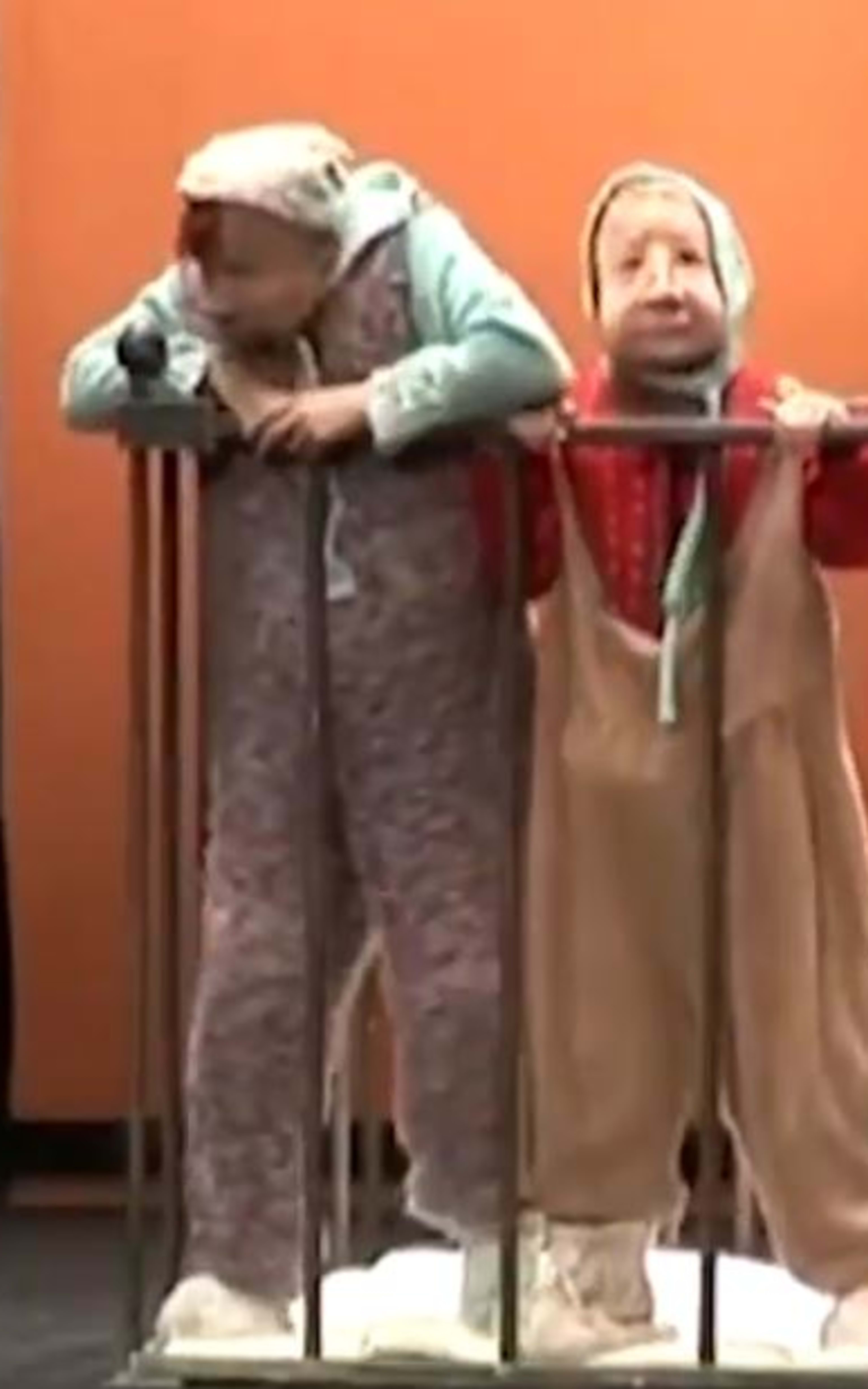
Life truths in masks
- Home
- Festival
- 2020-and-before
- Articles
- Life Truths In Masks
May 20, 2017
German theatre company Familie Flöz has chosen the world’s oldest communication channel: the body.
All the actors’ faces are hidden behind big masks and they don’t utter a single word. Still their performance Infinita prompted one reviewer to write that he could have sworn the actors had spoken, laughed and cried.
‘The body is the oldest instrument we have to communicate with. In a way, the mask is simply giving emphasis to the body and how it moves,’ says Hajo Schüler.
He is the company’s artistic director, and both directs and acts in the Bergen International Festival performance Infinita.
An extraordinary control of body language is one of the theatre company’s foremost characteristics.
‘The audience is an incredible specialist on body language. They read everything, unconsciously perhaps, but their knowledge of the body is very deep. To use this knowledge as a performer is wonderful, because it enables a profound connection with the spectator. You could say that we do not restrict on text or facial expression – it’s just that we shift them into the imagination of the audience,’ says Hajo Schüler.
Two years ago the company charmed and shocked the Bergen audience with the murderous situation comedy Hotel Paradiso. This year Familie Flöz presents a performance about life itself.
‘Infinita is no comedy, but that doesn’t mean that people don’t laugh from time to time. Laughter is a good way to get closer to issues, when things go deep somehow,’ says the director.
The performance explores life at its beginning and end.
‘When we talk about someone in the middle of life, we usually mean work, responsibility, tasks, family. What we were interested in with Infinita was looking at people before and after that period. Getting up for the first and for the last time, looking back or looking forward. But of course what we do on stage isn’t abstract at all, says Schüler.
In the play the main character Pechstein is sitting in his wheelchair at the grave of his partner.
‘In a way the story is told in a simple flashback: Pechstein as a baby, the separation from his mother, the first appearance of Mara, his partner … but in another way the timeline of life turns into circles by being remembered,’ he explains.
Both Pechstein and Mara are musicians, and it is the music that interlaces images of his and her memory into fragments of life.
‘The music is essential in Infinita. It is the counterpart of what we see, and as something without a body it is somehow more connected to infinity,’ says the artistic director.
Familie Flöz is named after the company’s very first show ‘Familie Flöz kommt Über Tage’ (Familie Flöz reaches daylight), produced in a shutdown coalmine in the Ruhr.
‘The name expresses an important aspect of our self-concept: ‘Flöz’ means a sedimentary deposit of raw material. We try to bring these deposits up and make them visible,’ says Schüler.
Since the company’s foundation, Familie Flöz has toured in 34 countries, always with contemporary versions of century-old disciplines such as mask theatre, clownery, acrobatics magic and improvisation.
‘Masks are such a universal and international tool. They can move any kind of audience in any part of the world,’ says Schüler.









